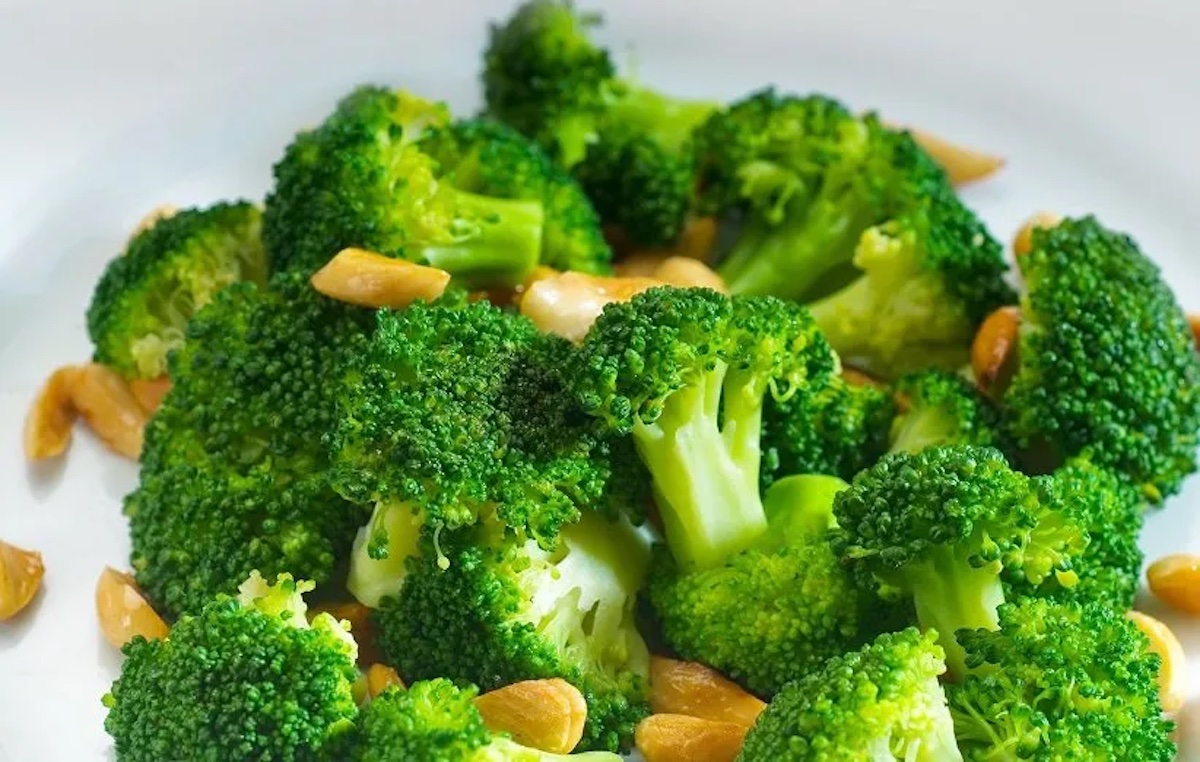Eating Broccoli May Have a Surprising Benefit for Your Hormones

Benefits of Eating Broccoli: Broccoli contains powerful plant compounds that may support hormone balance, particularly estrogen, a hormone crucial for metabolism and reproductive function.
How Broccoli Supports Hormone Balance
Broccoli is part of the cruciferous vegetable family, known for its fiber-rich and nutrient-packed greens. Like its “cousins” cabbage, kale, and Brussels sprouts, broccoli contains indole-3-carbinol (I3C), which the body turns into diindolylmethane (DIM)—a compound that affects how estrogen is broken down.
It also has sulforaphane, an antioxidant known for reducing inflammation, linked to preventing and treating cardiovascular diseases, diabetes, and obesity.
“Sulforaphane aids in the liver’s detoxification of excess estrogen, promoting the formation of more beneficial estrogen metabolites [and] potentially reducing risk of hormone-related cancers,” Lena Beal, MS, RDN, LD, CCTD, spokesperson for the Academy of Nutrition and Dietetics told Verywell, Broccoli doesn’t necessarily “lower” or “raise” hormones; it does help the body naturally process and eliminate them more efficiently. It’s like giving your endocrine system a little extra support.
Although it holds potential, more research is needed to determine its long-term effects and efficacy.
Which Hormones Are Affected?
Healthy diet, This veggie’s impact goes beyond estrogen. Thanks to its fiber, antioxidants, and unique compounds, broccoli can help maintain the body’s hormone balance in both men and women.
Beal says what matters most regarding hormones is balance and how they may interact with each other.
Disruptions in the ratio, like when there’s too much estrogen vs. testosterone, can cause unpleasant symptoms like weight gain, mood swings, and fatigue. But the right diet choices can help promote a better balance.

Here’s how broccoli can help:
Estrogen: Supports the breakdown and detox of estrogen in the liver, helping maintain a healthy hormonal balance.
Testosterone: Promotes a healthy testosterone-to-estrogen ratio, which helps with mood and energy levels,2 especially as people age.
Insulin: Its compounds and high fiber content help keep blood sugar steady, supporting insulin regulation and potentially reducing insulin sensitivity.
Who Benefits Most From Eating Broccoli?
While broccoli remains a health win for most, certain groups may benefit even more from adding this veggie to their weekly meal prep.
Consider adding some broccoli to your plate if you’re:
Managing premenstrual syndrome (PMS) 4or irregular periods
Experiencing hormonal shifts caused by perimenopause and menopause4
Looking to support insulin sensitivity and blood sugar balance
While some of these compounds have been studied as supplements, most were given in higher doses than what’s present in a regular amount of broccoli, but it’s hard to know for sure, said Layan Alrahmani, MD, an OBGYN at Loyola Medicine.
Some evidence shows these compounds can help balance hormones, but it’s hard to draw clear conclusions on how significant an impact broccoli itself may have on conditions like polycystic ovarian syndrome (PCOS).
Still, broccoli has a host of benefits, including anti-inflammatory properties5 that may be helpful and easily accessible in every stalk.

How to Prepare Broccoli to Maximize Its Health Benefits
Healthy diet, You may have heard raw vegetables are better, but when it comes to broccoli, you can get more hormone-supporting benefits when you prep it right:
Steam it lightly: This preserves sulforaphane to get the most out of its compounds.
Add healthy fats: Olive oil, avocados, and nuts can help the body better absorb broccoli’s fat-soluble vitamins and phytonutrients and tap into its anti-inflammatory qualities.
Make a balanced meal: Pair it with protein, fiber, and complex carbohydrates to promote healthy blood sugar levels and reproductive health.
Make it a habit: A few servings of broccoli a week can make a lasting impact.
Don’t overdo it: Broccoli and other cruciferous veggies like cabbage, kale, and Brussels sprouts contain goitrogens, a compound that can interfere with thyroid function in very high amounts when eaten raw, so there can be such a thing as too much.
What This Means for You
Broccoli is a fiber-rich, antioxidant-loaded vegetable that can support your body’s natural hormone regulation. Adding it to meals a few times a week with some healthy, delicious fats can give your body an easy and gentle way to support your cycle and blood sugar without relying on supplements. And if you struggle with PMS or a hormone imbalance it could be a tastier option for relief and support.
What happens when you drink garlic, ginger and lemon water every day?
5 monsoon hydration tips that you should know to prevent dehydration
What happens to your body when you switch to a vegan diet?
11 high-fibre foods to relieve constipation and promote digestive health




